 Town Hall of Ljubljana By juanma from Barcelona, Spain (Mestna hiša Uploaded by Sporti) [CC BY 2.0 Town Hall of Ljubljana By juanma from Barcelona, Spain (Mestna hiša Uploaded by Sporti) [CC BY 2.0
(http://creativecommons.org/licenses/by/2.0)], via Wikimedia Commons |
These days we behave as if time is a constant. This isn’t always how people have thought of time. Before the industrial revolution there wasn’t a real reason to have an accurate way to tell time. Of course big cities had town clocks, but individuals didn’t usually have a personal timepiece. Work was done by the sun – start in the fields at sun up and come in when the sun was going down. Meetings were held when everyone got there. |
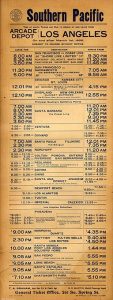
Southern Pacific train schedule, 1906 (WVM01) See page for author [Public domain], via Wikimedia Commons |
|
| Ideas about time were already changing by the beginning of the 1800’s and the concept of time was revolutionized when trains became the way to travel. With train travel time became important. Trains had schedules and people had to be on time. Before trains local time was good enough. After trains we needed standardized trains and time zones. And when the jobs moved to the city people needed to be on time to factory jobs and the world sped up. It is no coincidence that Carroll published Alice in Wonderland in 1865 when people ran like the White Rabbit always watching the clock and being late. | 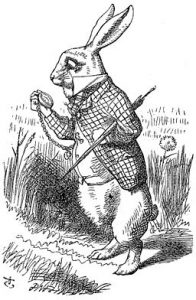 |
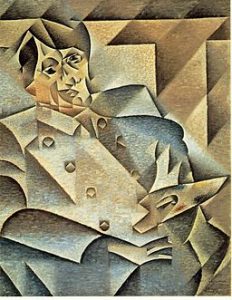 Juan Gris [Public domain], via Wikimedia Commons |
It is no coincidence that Picasso’s cubism came from an artist who was born in the 1880’s. He represented the view you see when moving fast where you can see more than one perspective seemingly at once. Look at the view in a car and you can see the side, front and other side of something in rapid succession. That was part of the influence behind cubism.
|
| In the early 1900’s, every day people started to have clocks, and even watches. The early 1900’s people owned pocket watches. It wasn’t until WWI that wrist watches were developed, but that is another story. | |
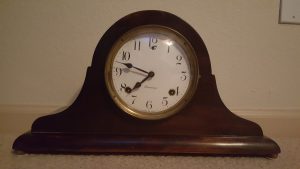 |
 |
| Given to Anna Colyer and Oscar Friend Keyes as a wedding gift on October 12th 1904 (my husband Charlie’s ancestors) | |
| I hope that Longing for Home captured some of the way that concepts of time were changing and the world was speeding up in the late 1800’s. | |

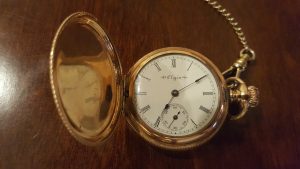
Be First to Comment